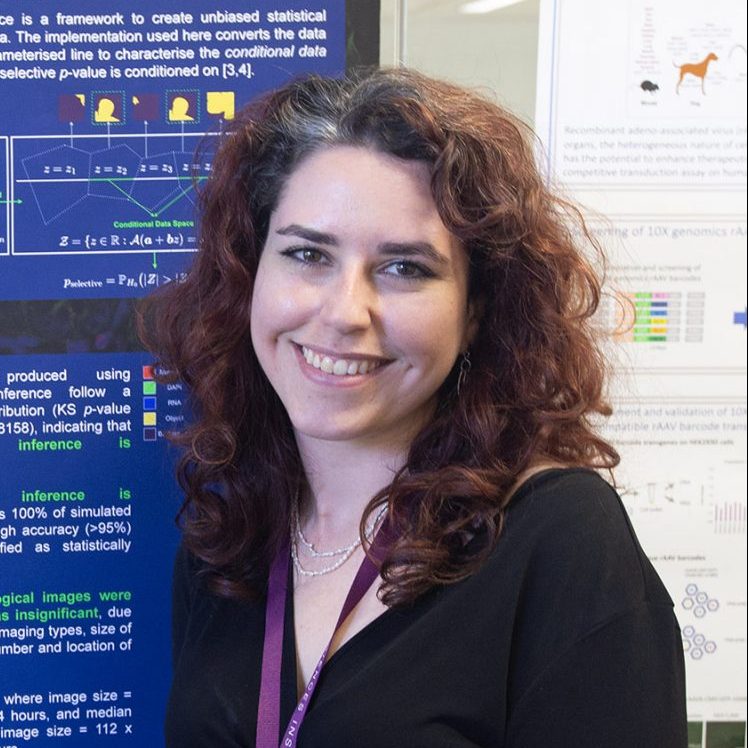
Jenna Supper
University of Queensland
I completed the Bachelor of Advanced Science (Honours) at the University of Queensland in 2024 with a major in bioinformatics, and completed my honours research at the Australian Institute for Bioengineering and Nanotechnology. I am interested in the broad applications of data science and statistics, especially to enhance the interpretability of data representing molecular systems. Previously I have worked on projects in diverse fields such as metagenomics and medical image analysis.
Can you describe the area of mathematics or bioinformatics you’re focusing on, and what you hope to achieve through your research?
My honours research project concerned the quantification of statistical reliability for results produced by deep learning cellular segmentation models. Cellular segmentation is the automatic identification of cellular boundaries in images of cells. It can be difficult to intuitively evaluate whether a cellular segmentation result is ‘good’ from manual observation, especially in cases where there are many cells in an image. The program we developed allows a quantitative measurement of statistical reliability, which allows the outputs of different models to be fairly evaluated.
What inspired you to pursue a career in bioinformatics or the mathematical sciences?
I decided to major in Bioinformatics during my undergraduate when I took an introductory software engineering course. I had never done any programming and found it challenging at first, but found the small successes highly motivating. Discovering that I could apply these skills to address problems in the biological and medical sciences was something that really excited me, and constant innovation in the field continues to motivate me to learn more.
If you could give advice to your younger self, what would it be?
I would tell myself to pursue things that you enjoy, even if you are not the best at them. I never considered myself mathematically oriented in school, and that doubt held me back from pursuing subjects that I found interesting in university. Sometimes you need to work at things you enjoy and it’s important to get used to and find joy in the discomfort of trying new things.
How was your AMSI BioInfoSummer experience?
AMSI BioInfoSummer was recommended to me by other students from UQ who had attended in the past. I wanted to attend a student-focused conference with hands on experience in the methods that Australian bioinformatics researchers are using, which made the workshops at AMSI really valuable. I also had the opportunity to present my research, which was a great exercise in scientific communication and allowed me to bounce ideas off other students and ECRs.
You received an AMSI BioInfoSummer travel grant to attend in person. How did this grant impact your ability to participate fully?
Many people can empathise with the limited funding that research groups and students have available to attend events like AMSI BioInfoSummer, so this travel grant allowed me to attend the event despite not being based in my city. Travelling to Melbourne in person provided an opportunity to meet students from other cities and form stronger connections as opposed to attending online.
What was the most valuable experience or takeaway from AMSI BioInfoSummer?
The diversity in sessions allowed me to experience and learn about a range of bioinformatics topics being studied in Australia, and it broadened my horizons beyond my current research focus.
Where do you see your journey in mathematical sciences taking you in the next 5–10 years?
I hope to continue my education in the mathematical sciences through further study so that I can continue working on problems in bioinformatics. I am also interested in applying my skills in an industrial setting in the future.
Is there anything else you’d like to share about your experience or feedback on AMSI BioInfoSummer or the travel grant?
As a student who is early in their career, the new people I met during the conference has helped me understand more about other research areas in bioinformatics, and I would encourage other students to seek out opportunities like AMSI BioInfoSummer.
